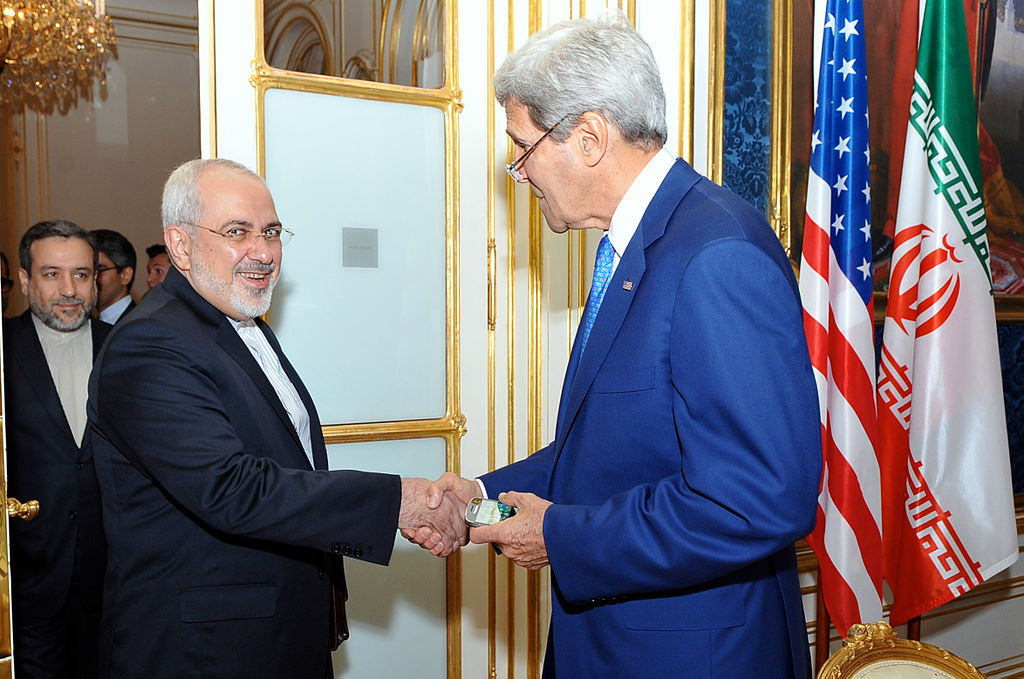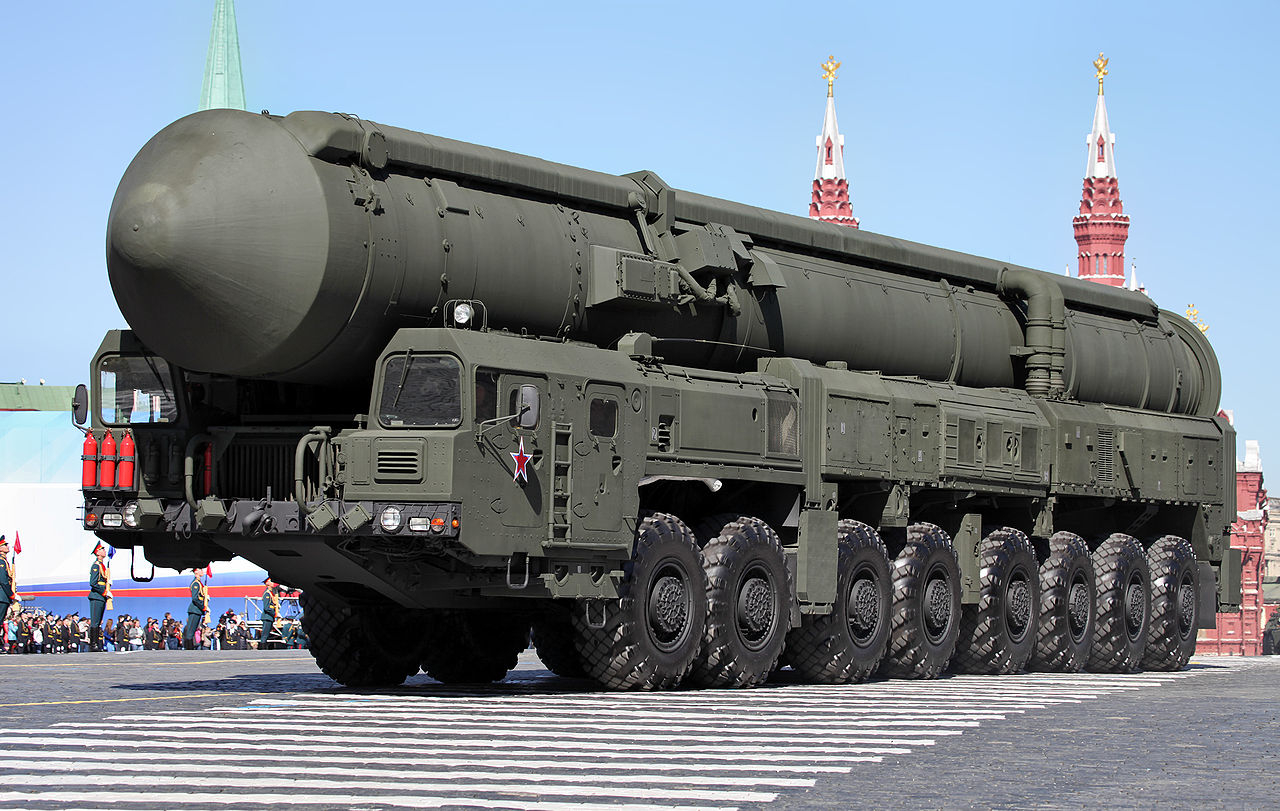In this mailing: - Majid Rafizadeh: Nuclear Extortion: Mullahs Want More Concessions from Biden
- Stephen Blank and Peter Huessy: The Pernicious Effects of Popular Nuclear Mythology
by Majid Rafizadeh • January 19, 2021 at 5:00 am Iran... rejoined the global financial system with full legitimacy -- plus billions of dollars flowing into the treasury of the IRGC and its expanding militias across the Middle East. You would think, then, that the regime would be delighted to return to the same nuclear deal, right? Wrong. The mullahs want an even sweeter deal. Biden already showed his cards by stating that he wants the deal. The regime now knows that Biden seems desperate for a deal, and doubtless sees this as a delectable weakness. The ruling mullahs also most likely assume that they can extort even more concessions from a Democrat administration, particularly Biden's, because they successfully did so in the past.... Iran's Foreign Minister Javad Zarif... told a forum... that he wants a new deal. "A sign of good faith is not to try to renegotiate what has already been negotiated," he said, adding in the same speech that the US must "Compensate us for our losses." Iran's top judicial body had already demanded that the US pay $130 billion in "damages." The regime, in addition, is playing another dangerous game, as it did with the Obama administration, to program to extort greater concessions from the Biden administration: It is ratcheting up nuclear threats.
 Iran's ruling mullahs most likely assume that they can extort even more concessions from a Biden administration, because they successfully did so with the Obama administration. Iran's Foreign Minister Javad Zarif recently said at a forum that he wants a new deal. "A sign of good faith is not to try to renegotiate what has already been negotiated," he said, later adding that the US must "Compensate us for our losses." Pictured: Then US Secretary of State John Kerry shakes hands with Zarif during negotiations in Vienna, Austria, on July 14, 2014. (Image source: US State Department) The Iranian regime received a dangerous and unprecedented level of concessions from the Obama administration for Iran's 2015 "nuclear deal," known as the JCPOA (Joint Comprehensive Plan of Action) -- which, by the way, Tehran never signed. The major concession was that the deal paved the way for Iran legally to become a full-blown nuclear state. Continue Reading Article by Stephen Blank and Peter Huessy • January 19, 2021 at 4:00 am While one looks with alarm at the massive Russian nuclear modernization effort now nearing completion, the disarmament lobby -- such as Ploughshares and Global Zero -- views such modernization as simply a reflection of how the American threat is perceived by the Russians. There is also little doubt that the Russian Federation's priority investment in nuclear weapons was -- and remains -- aimed primarily to checkmate the United States' conventional weapons superiority, and give Russia a free hand to use its own military power for hegemonic purposes. The same could be said of North Korea and Iran's decisions to go along their respective paths to nuclear breakout. What brings the issue to the forefront today is that many luminaries of previous administrations who may now be staffing the incoming administration still hold these historically inaccurate views. A commitment to a "sole-purpose" posture -- or to its equivalent, a "no-first-use" stance -- not only undermines the US nuclear umbrella upon which America's allies have relied for 70 years, it also invites a Russian first strike. Moscow's conventional and nuclear forces are configured for just that kind of operation and are ultimately restrained only by the American nuclear deterrent. If the United States wrongly assumes that Russia's deterrent serves no offensive purpose, we would be ignoring recent and authoritative evidence to the contrary.... Russia's military posture is fundamentally offensive.... "active defense." Russia's ability to initiate conventional strikes against its rivals and adversaries is closely backed up by nuclear weapons. Iran would undoubtedly see even partial unilateral US disarmament as a green light for its nuclear quest. One can imagine what that would lead to in the Middle East. Moreover, US unilateral acts of altruism, designed to lead by example, will not be reciprocated: states in general, and certainly Russia and China, are, to quote Charles De Gaulle, "cold monsters."
 While one looks with alarm at the massive Russian nuclear modernization effort now nearing completion, the disarmament lobby views such modernization as simply a reflection of how the American threat is perceived by the Russians. (Image source: Vitaly V. Kuzmin/Wikimedia Commons) There is a widespread belief, especially among advocates of nuclear disarmament, that a country with nuclear weapons is primarily interested in self-protection. The narrative continues with another belief -- really more of a wish -- that nuclear weapons should never be used to deter anything other than a nuclear attack from an adversary and, if that can be agreed upon, nations would then be willing to get rid of nuclear weapons altogether. Those beliefs then requires a further assumption that nuclear weapons cannot practically be used as instruments of aggression, coercion or blackmail and -- because nuclear weapons are so deadly -- that they also would not be used to deter non-nuclear attacks, such as those involving cyber, an electromagnetic pulse, or biological weapons. Continue Reading Article |
|
No comments:
Post a Comment